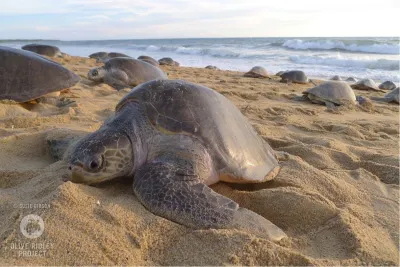Scientists have recently confirmed what divers have suspected for decades, and shown that corals from the Northern Red Sea are less affected by temperature rises than those from other reefs around the world.
In fact, the research team believes that these heat-resistant corals offer a glimmer of hope for reefs in the face of climate change and rising sea temperatures.
In an experiment conducted at the University of Eilat, researchers exposed coral samples to higher and higher water temperatures - ones that simply kill corals from other locations in just days or weeks. However, the samples from the Gulf of Aqaba were largely unaffected, and actually appeared to flourish.
Even at seven degrees warmer than the Red Sea’s peak summer water temperatures, they “showed improved physiological performance”, said Maoz Fine, the professor of marine science who led the research.

Just how these corals are able to survive such extreme conditions is explained by the unique geological history of the Red Sea. During the last major ice age more than 2.5 million years ago, the strait that links the Red Sea to the Indian Ocean receded, cutting off the sea and rendering it too hot and salty to sustain life. After the ice caps melted again, the strait reappeared, and life began to recolonise the inhospitable sea from the south. Over hundreds of thousands of years, corals evolved adaptations to the high salinity and temperatures, allowing them to make the journey north and eventually colonise the Gulf of Aqaba where the coral samples were taken from.
In fact, scientists believe that many of the coral species found in the Red Sea were forged by this migration. And that their adaptations to increased temperatures may offer hope for the survival of other species and reefs around the world.
The scientists are now trying to learn more about the physiological basis for the corals’ survival, and with this information, they hope to steer the evolution of species from other reefs around the world – much like selective breeding. However this process requires a considerable length of time, which is fast running out for reefs as climate change accelerates.
What is needed is a coordinated effort from the countries that border the Red Sea: to better understand how these corals survive extremes of temperature and salinity; and to better protect the reefs of this unique area, where the answers to how we might help protect corals against climate change might be found.




